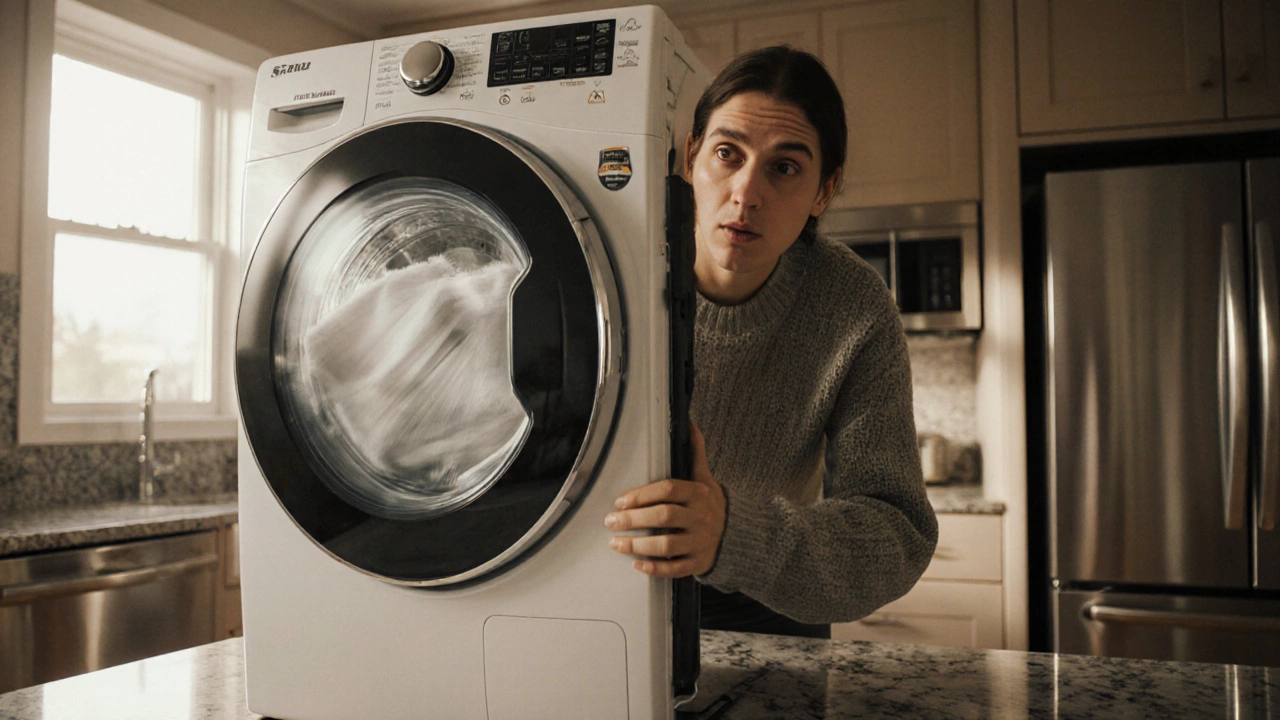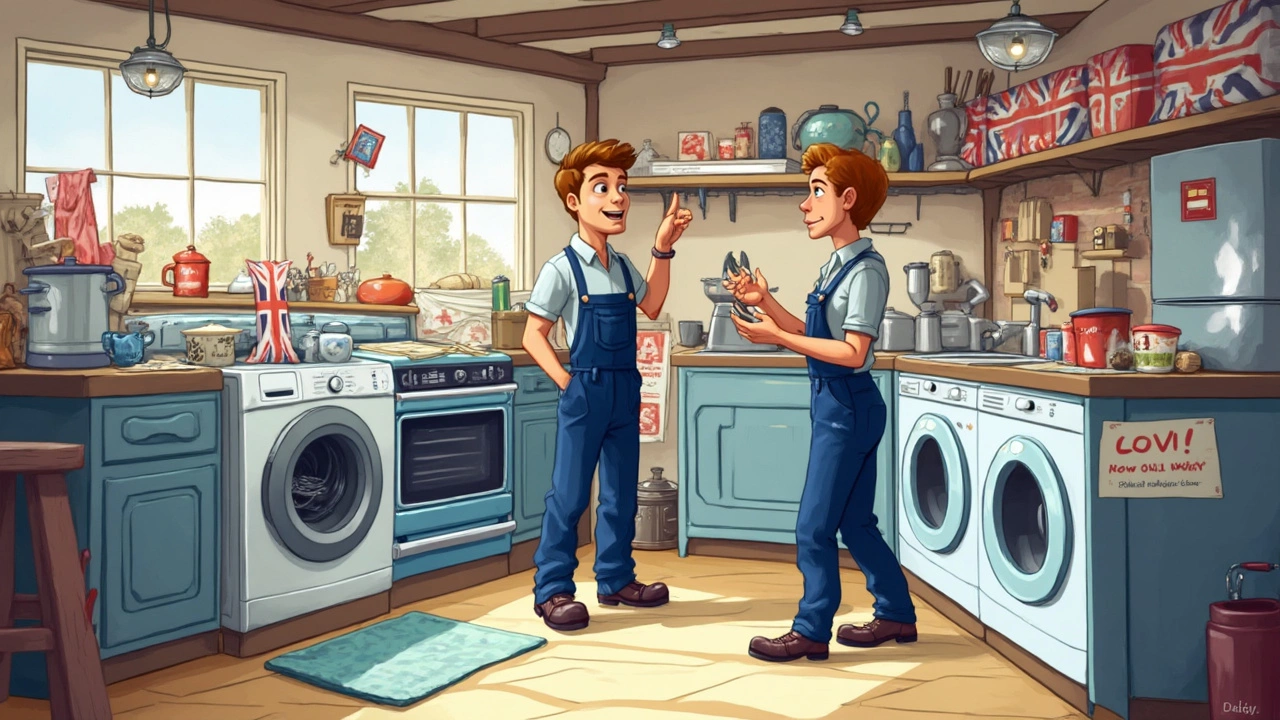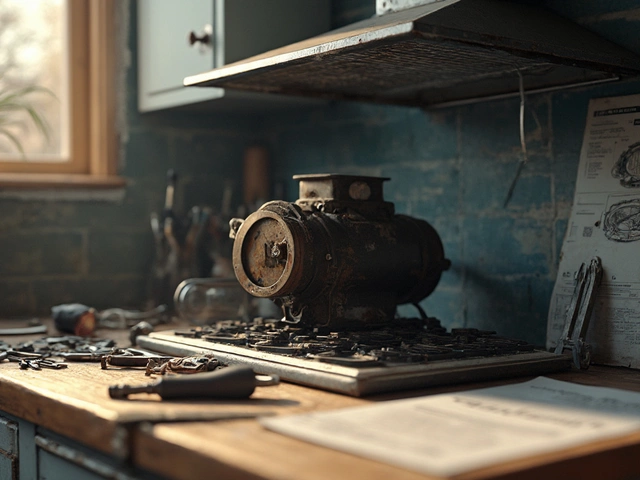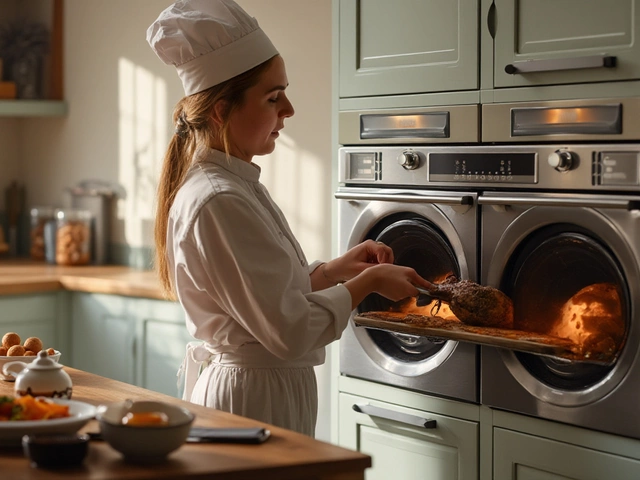When a washing machine stops spinning or your oven refuses to heat, the first instinct is often to call a pro. But many common issues can be sorted out at home with a few simple steps. On this page you’ll get straight‑to‑the‑point advice on fixing the most common appliances, plus when it’s smarter to let a Bognor Regis expert take over.
Before you pick up the phone, run through these quick checks. They’re safe, need only basic tools, and solve over half of the calls we get.
If these steps don’t solve the issue, the next section shows where you can dive a little deeper without needing a professional.
Electric oven not heating? The culprit is usually a blown heating element or a faulty thermostat. Unplug the oven, remove the back panel and test the element with a multimeter. If there’s no continuity, replace it – it’s a cheap part and the swap takes under 30 minutes.
Fridge feels warm but the light works? Start by checking the condenser coils at the back. Dust buildup forces the compressor to work harder and can lead to a warm interior. Vacuum the coils, give the fridge a minute to stabilize, and you’ll often see the temperature drop back to normal.
Dishwasher won’t start? Look at the door latch and the selector switch. A broken latch sends a “door open” signal to the control board, preventing the cycle from launching. Replacing a latch costs less than £20 and is a quick snap‑in job.
Washing machine leaks? Examine the door seal and the detergent drawer. Over‑filling detergent or using the wrong type creates excess suds that spill out. A clean seal and the right detergent dose usually stop the leak.
For any of these fixes, always turn off the appliance at the mains first. Safety isn’t optional.
Even with the best DIY approach, some problems need a trained hand. If you spot burnt wiring, hear loud hissing, or the appliance just won’t run after basic troubleshooting, it’s time to call the Bognor Regis Appliance Repair Experts. Our technicians know the ins and outs of every major brand and can guarantee a quick, reliable fix.
Remember, regular maintenance keeps things running longer. Schedule a quick check‑up at least once a year – clean filters, flush water heaters, and wipe down door seals. A little routine work saves you time, money and the hassle of emergency repairs.
Got a specific problem that isn’t covered here? Browse the list of guides below for detailed step‑by‑step instructions on everything from heat pump troubleshooting to extracting fan replacement. Each article is written in plain English, with tool lists and safety tips, so you can decide whether to roll up your sleeves or hand the job over to a local pro.
Whether you’re a seasoned DIYer or just looking for a quick fix, this page is your go‑to hub for reliable appliance service advice. Keep it bookmarked, and you’ll always have a handy reference when something stops working. Happy fixing!

An appliance is a device designed to perform a specific household task like cooking, cleaning, or cooling. It’s not just anything that plugs in - it must replace manual labor and be used regularly at home. Understanding this helps you find the right repair service and know what’s covered under warranties.

Learn why and when appliances need professional service, the signs of trouble, how often each should be checked, DIY tips, costs and when to replace.

This article breaks down what 'appliance for a job' really means in the appliance service world. It explains common misunderstandings and clarifies whether it refers to equipment or applying for work. The piece gives real-world examples, explores the hiring process for technicians, and shares tips for both customers and job seekers. Straightforward info keeps things practical and easy to follow. If you've ever scratched your head at this phrase, you'll finally get the answer here.

Get to know the four appliances that no modern home can do without, why they matter, and how to keep them working smoothly. Discover easy maintenance tips, signs of trouble, and smart ways to save money on repairs. If you want your home to run without a hitch, paying attention to these basics is a must. This article makes home appliance care straightforward and stress-free. No fluff, just practical advice you can actually use.

In the business world, appliances aren't just about the gadgets in your kitchen; they're tools and strategies central to operations. From simplifying daily tasks to enhancing efficiency, appliances play pivotal roles in various business aspects. Understanding their function means knowing how technology, devices, and smart systems integrate into business to drive productivity. Delving into real-life examples, this article provides insights and tips on leveraging appliances effectively.

Discover the essential roles appliances play in our daily lives and learn effective tips for maintaining their efficiency. From refrigerators to washing machines, each appliance features unique mechanics tailored for specific tasks. Grasping these functions is crucial for efficient servicing and longevity. Uncover surprising facts about how appliances work and ground yourself in practical maintenance advice to keep them running smoothly.

Struggling with a troublesome boiler? Discover the most frequent issues like lack of heat, strange noises, and leaking water. Learn practical tips and tricks on how to diagnose and fix these problems on your own. Recognize when it's time to call a professional and keep your home warm and comfortable.

Pressure cookers can usually be repaired, and fixing them at home can save both time and money. This article covers how to spot common problems, which parts can be replaced, and when to leave repair jobs to the pros. You'll also find smart tips to keep your pressure cooker running safely. Even if you're not a 'handy' person, a lot of repairs are easier than you’d think. Don't toss out that pressure cooker until you know what can actually be fixed.

Thinking about swapping out the motor in your extractor fan? This article breaks down what's really involved, the red flags that mean the motor's cooked, and how to decide if you should tackle it yourself or call in a pro. It covers how to find the right replacement part, tips to avoid shocking mistakes, and why some fans just aren’t worth fixing. Whether your bathroom fan wheezes or your kitchen extractor hums like a jet, here’s how to handle a motor on its last legs.

When your fridge stops cooling, it can be a real worry, especially with all that food at risk. Before you call the repairman, there are a few steps you can try yourself to bring your refrigerator back to life. From checking the thermostat settings to cleaning coils and examining door seals, you might find that a simple DIY fix does wonders. Understanding how these appliances work can also help prevent future hassles. This guide will walk you through the essential tips and tricks to get your fridge cooling again.

Searching for a trusty electric oven can make a big difference in your cooking experience and lessen repair issues. This article uncovers the top-performing brands known for reliable electric ovens, sharing insights on what makes these brands stand out. From innovative features to energy efficiency, you'll learn tips on choosing the right oven and maintaining it for long-lasting use. Whether you're shopping for a new appliance or fixing an old one, this guide shines a light on the best options available today.